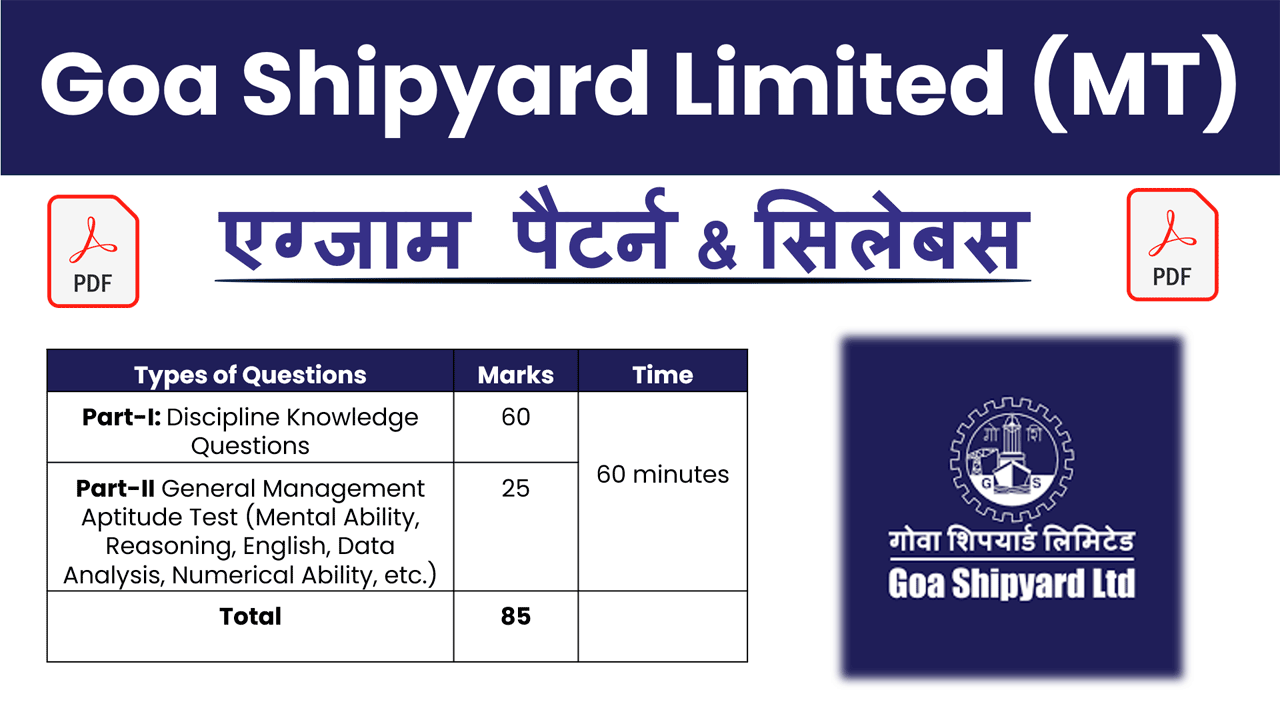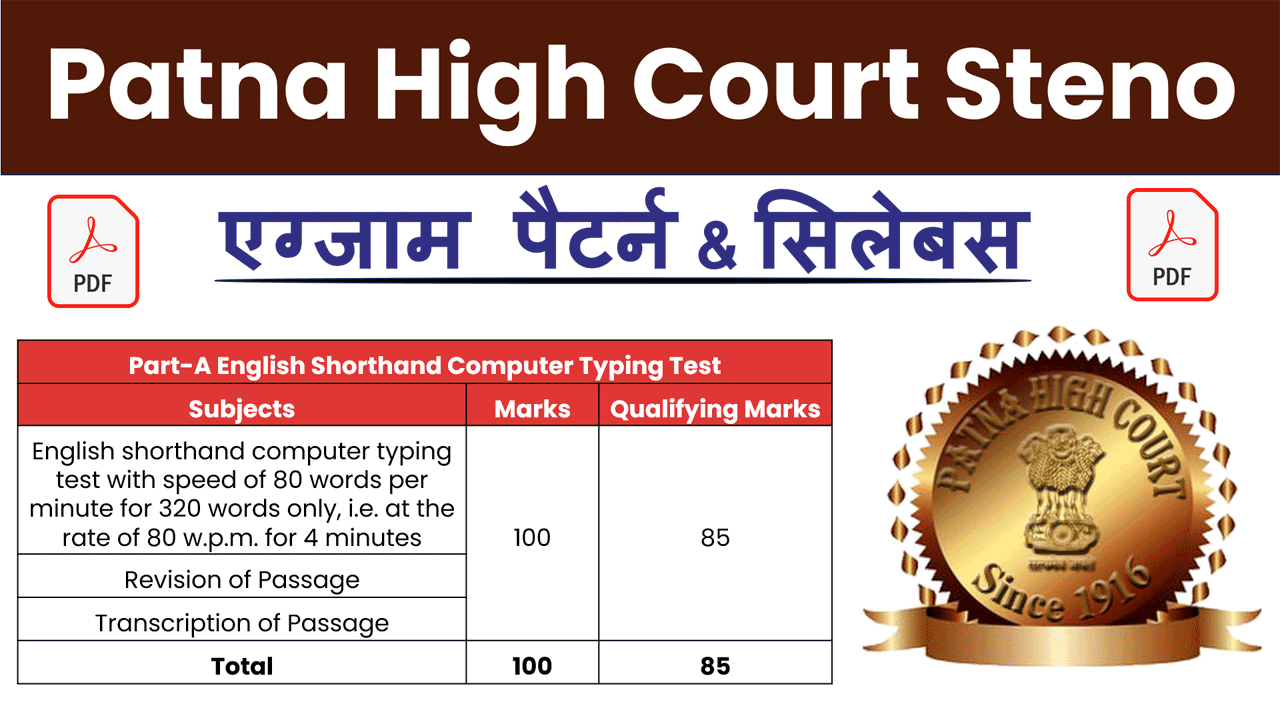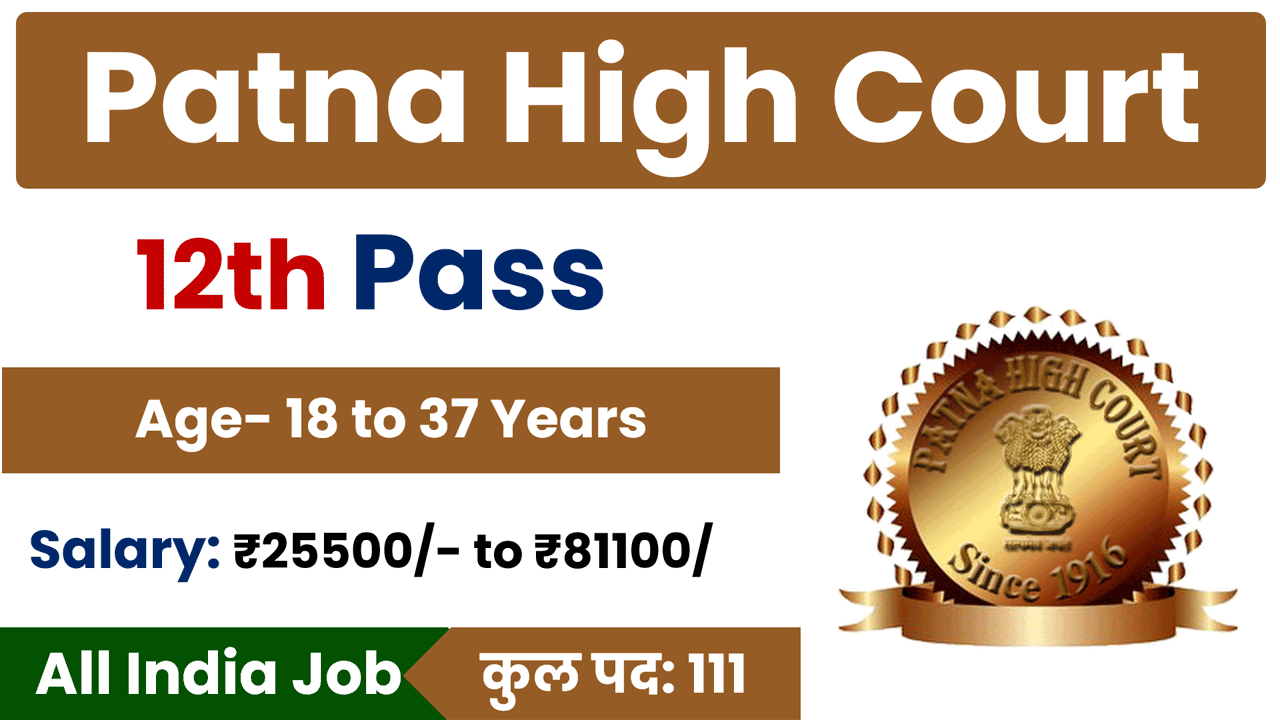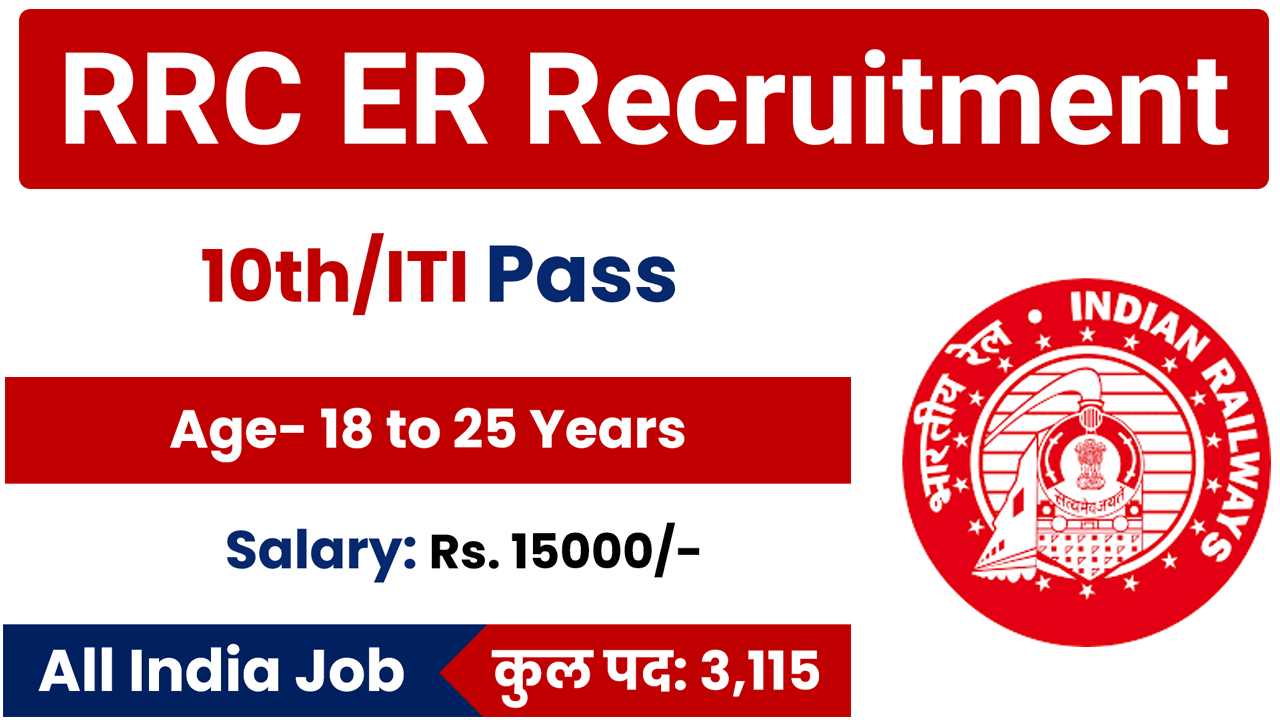IES Syllabus for Electrical Engineering 2025 PDF Download: Recruitment for the posts of IAS Electrical Engineering has been done by the Union Public Service Commission. Candidates who have filled the application form for IES Electrical Engineering exam must have complete knowledge of IES Electrical Engineering Syllabus 2025 (IES Syllabus for Civil Engineering 2025 in Hindi). If the candidate has complete knowledge of IES Electrical Engineering Syllabus 2025 then he can make his exam strategy well according to the syllabus.
In this article, complete information about IES Electrical Engineering Syllabus 2025 (IES Syllabus for Civil Engineering 2025) has been given in detail so that all the candidates can make their exam strategy according to the IES Electrical Engineering Syllabus. Many candidates do not know till the time of examination what type of questions will be asked in the examination and how many questions will be asked from which topic.
In such a situation, if you are serious about the IES Electrical Engineering recruitment exam, then you should have complete information about IES Electrical Engineering Syllabus 2025 (IES Syllabus for Civil Engineering 2025 in Hindi) in detail. In today’s very competitive environment, if you do not know the syllabus then you cannot do anything good in the examination. Because you can assume that lakhs of candidates must have applied for the IES Electrical Engineering exam, in such a situation, if you prepare according to the IES Electrical Engineering syllabus, then your chances of getting selected increase.
In this article, complete information about IES Electrical Engineering Syllabus is given in detail like IES Electrical Engineering Syllabus 2025, IES Electrical Engineering Exam Pattern 2025, IES Electrical Engineering Minimum Qualifying Marks information etc. All candidates should download IES Electrical Engineering Syllabus 2025 Hindi PDF (IES Syllabus for Civil Engineering 2025 in Hindi PDF Download). The link to download IES Electrical Syllabus Hindi PDF is given below in the important download section, candidates should go to that section and download the PDF of the syllabus.
If any candidate is facing any problem or difficulty in downloading IES Electrical Engineering Syllabus PDF, then he can tell in the comment box given below. 12th pass candidates can apply for IES Electrical Engineering Recruitment Examination. In this examination, all the candidates from all over India can fill the application form. If you are going to appear for IES Electrical Engineering Recruitment exam then you must have complete knowledge of IES Electrical Engineering Syllabus 2025. Candidates whose age is between 18 years to 25 years are eligible to appear for IES Electrical Engineering Recruitment Examination.
Age relaxation will be given to reserved category candidates by the Union Public Service Commission. Apart from the information given in this article related to IES Electrical Engineering Syllabus, if the candidates want to get any other information related to it, then they can ask their questions in the comment box given below.
IES Syllabus for Electrical Engineering 2025: Selection Process
- Candidates will be selected in IES Electrical Engineering Recruitment Examination through Preliminary Written Examination (Prelims), Mains Written Examination (Mains) and Personality Test.
IES Syllabus for Electrical Engineering 2025: Exam Pattern
Preliminary Written Examination Electrical Engineering
| Written Examination (Electrical Engineering) | |
| Subjects | Marks |
| General Studies and Engineering Aptitude |
200 |
| Electrical Engineering | 300 |
| Total | 500 |
Note:
- In the preliminary written examination, question paper-1 will be of total 200 marks and question paper-2 will be of total 300 marks.
- You will get 2 hours time to solve Question Paper-1 and 3 hours time to solve Question Paper-2.
- There will be negative marking in the written examination, ⅓ marks will be deducted as penalty for each wrong answer.
- The language of the question paper will be English.
Electrical Engineering: Mains Exam
| Main Written Examination (Electrical Engineering) | |
| Subject | Marks |
| Paper-1 Electrical Engineering | 300 |
| Paper-2 Electrical Engineering | 300 |
| Total | 600 |
Note:
- In the main written examination, question paper-1 will be of total 300 marks and question paper-2 will be of total 300 marks.
- You will get 3 hours each to solve Question Paper-1 and Question Paper-2.
- There will be negative marking in the written examination, ⅓ marks will be deducted as penalty for each wrong answer.
- The language of the question paper will be English.
IES Syllabus for Electrical Engineering 2025: Personality Test
- Personality test will be 200 marks.
IES Syllabus for Electrical Engineering 2025
General Studies and Engineering Aptitude
- Current issues of national and international importance relating to social, economic and industrial development
- Engineering Aptitude covering Logical reasoning and Analytical ability
- Engineering Mathematics and Numerical Analysis
- General Principles of Design, Drawing, Importance of Safety
- Standards and Quality practices in production, construction, maintenance and services
- Basics of Energy and Environment: Conservation, environmental pollution and degradation, Climate Change, Environmental impact assessment
- Basics of Project Management 8. Basics of Material Science and Engineering
- Information and Communication Technologies (ICT) based tools and their applications in Engineering such as networking, e‐governance and technology based education
- Ethics and values in the Engineering profession.
IES Syllabus for Electrical Engineering 2025: Paper-1
Engineering Mathematics
- Matrix theory
- Eigen values & Eigen vectors
- system of linear equations
- Numerical methods for solution of non‐linear algebraic equations and differential equations
- integral calculus
- partial derivatives
- maxima and minima
- Line
- Surface and Volume Integrals
- Fourier series, linear
- non‐linear and partial differential equations
- initial and boundary value problems
- complex variables
- Taylor’s and Laurent’s series
- residue theorem
- probability and statistics fundamentals
- Sampling theorem
- random variables
- Normal and Poisson distributions
- correlation and regression analysis
Electrical Materials
- Electrical Engineering Materials
- crystal structures and defects
- ceramic materials
- insulating materials
- magnetic materials – basics, properties and applications
- ferrities
- ferro‐magnetic materials and components
- basics of solid state physics
- conductors
- Photo‐conductivity
- Basics of Nano materials and Superconductors
Electric Circuits and Fields
- Circuit elements, network graph
- KCL
- KVL
- Node and Mesh analysis
- ideal current and voltage sources
- Thevenin’s, Norton’s
- Superposition and Maximum Power Transfer theorems
- transient response of DC and AC networks
- Sinusoidal steady state analysis
- basic filter concepts
- two‐port networks
- three phase circuits
- Magnetically coupled circuits
- Gauss Theorem
- electric field and potential due to point
- line, plane and spherical charge distributions
- Ampere’s and Biot‐Savart’s laws
- inductance, dielectrics
- capacitance
- Maxwell’s equations
Electrical and Electronic Measurements
- Principles of measurement
- accuracy
- precision and standards
- Bridges and potentiometers
- moving coil
- moving iron
- dynamometer and induction type instruments
- measurement of voltage
- current
- power
- energy and power factor
- instrument transformers
- digital voltmeters and multi‐meters
- phase
- time and frequency measurement
- Q‐meters
- oscilloscopes
- potentiometric recorders
- error analysis
- Basics of sensors
- Transducers
- basics of data acquisition systems
Computer Fundamentals
- Number systems
- Boolean algebra
- arithmetic functions
- Basic Architecture
- Central Processing Unit
- I/O and Memory Organisation
- peripheral devices
- data representation and programming
- basics of Operating system and networking
- virtual memory
- file systems
- Elements of programming languages
- typical examples
Basic Electronics Engineering
- Basics of Semiconductor diodes and transistors and characteristics
- Junction and field effect transistors (BJT, FET and MOSFETS)
- different types of transistor amplifiers
- equivalent circuits and frequency response
- oscillators and other circuits
- feedback amplifiers
IES Syllabus for Electrical Engineering 2025: Paper-2
IES Syllabus for Electrical Engineering 2025: Analog and Digital Electronics
- Operational amplifiers – characteristics and applications
- combinational and sequential logic circuits, multiplexers
- multi‐vibrators
- sample and hold circuits
- A/D and D/A converters
- basics of filter circuits and applications
- simple active filters
- Microprocessor basics‐ interfaces and applications
- basics of linear integrated circuits
- Analog communication basics
- Modulation and de‐modulation
- noise and bandwidth
- transmitters and receivers
- signal to noise ratio
- digital communication basics
- sampling
- quantizing
- coding
- frequency and time domain multiplexing
- power line carrier
- communication systems
IES Syllabus for Electrical Engineering 2025: Systems and Signal Processing
- Representation of continuous and discrete‐time signals
- shifting and scaling operations
- linear
- time‐invariant and causal systems
- Fourier series representation of continuous periodic signals
- sampling theorem
- Fourier and Laplace transforms
- Z transforms
- Discrete Fourier transform
- FFT
- linear convolution
- discrete cosine transform
- FIR filter
- IIR filter
- bilinear transformation
IES Syllabus for Electrical Engineering 2025: Control Systems
- Principles of feedback
- transfer function
- block diagrams and signal flow graphs
- steady‐state errors
- transforms and their applications
- Routh‐hurwitz criterion
- Nyquist techniques
- Bode plots
- root loci
- lag
- lead and lead‐lag compensation
- stability analysis
- transient and frequency response analysis
- state space model
- state transition matrix
- controllability and observability
- linear state variable feedback
- PID and industrial controllers
IES Syllabus for Electrical Engineering 2025: Electrical Machines
- Single phase transformers
- three phase transformers ‐ connections
- parallel operation
- auto‐transformer
- energy conversion principles
- DC machines ‐ types, windings, generator characteristics
- armature reaction and commutation
- starting and speed control of motors
- Induction motors ‐ principles, types, performance characteristics
- starting and speed control
- Synchronous machines ‐ performance, regulation
- parallel operation of generators
- motor starting
- characteristics and applications
- servo and stepper motors
IES Syllabus for Electrical Engineering 2025: Power Systems
- Basic power generation concepts
- steam
- gas and water turbines
- transmission line models and performance
- cable performance
- insulation
- corona and radio interference
- power factor correction
- symmetrical components
- fault analysis
- principles of protection systems
- basics of solid state relays and digital protection
- Circuit breakers
- Radial and ring‐main
- distribution systems
- Matrix representation of power systems
- load flow analysis
- voltage control and economic operation
- System stability concepts
- Swing curves and equal area criterion
- HVDC transmission and FACTS concepts
- Concepts of power
- system dynamics
- distributed generation
- solar and wind power
- smart grid concepts
- environmental implications
- fundamentals of power economics
. IES Syllabus for Electrical Engineering 2025: Power Electronics and Drives
- Semiconductor power diodes
- transistors
- thyristors
- triacs
- GTOs
- MOSFETs and IGBTs ‐ static characteristics and principles of operation
- triggering circuits
- phase control rectifiers
- bridge converters ‐ fully controlled and half controlled
- principles of choppers and inverters
- basis concepts of adjustable speed DC and AC drives
- DC‐DC switched mode converters
- DC‐AC switched mode converters
- resonant converters
- high frequency inductors and transformers
- power supplies
FAQs Related to IES Syllabus for Electrical Engineering 2025
Question 1. What is the IES Electrical Engineering Syllabus?
Answer: Questions related to General Awareness and related engineering will be asked in IES Electrical Engineering Syllabus. Read this article completely for complete information.
Question 2. What is the exam pattern of IES Electrical Engineering Recruitment Exam?
Answer: The exam pattern of IES Electrical Engineering Recruitment Examination will first consist of preliminary written examination followed by main written examination and finally personality test.
Question 3. What are the total marks required to qualify in the written examination of IES Electrical Engineering Recruitment 2025?
Answer: No information is given about qualifying in the written examination of IES Electrical Engineering Recruitment 2025.
Question.4. How to Download IES Electrical Engineering Syllabus 2025 PDF?
Answer: Information about IES Electrical Engineering Syllabus 2025 course is given in this article, for complete information read this article completely.
Question.5. Will there be negative marking in the IES Electrical Engineering Recruitment Exam?
Answer: Yes, there will be negative marking in IES Electrical Engineering Recruitment Exam. ⅓ marks will be deducted as a penalty for each wrong answer.
Question.6. What is the education qualification to apply for the IES Electrical Engineering Recruitment Exam?
Answer: To apply for IES Electrical Engineering Recruitment Examination, it is mandatory for the candidates to have passed graduation.
Question.7. How to download IES Electrical Engineering Syllabus PDF in Hindi?
Answer: Information about IES Electrical Engineering Syllabus 2025 course is given in this article, for complete information read this article completely.
Question.8. In which 2 languages will the IES Electrical Engineering exam be conducted?
Answer: IES Electrical Engineering exam will be conducted in English language.
Question.9. What is the IES Electrical Engineering Syllabus?
Answer: Questions related to General Awareness and related engineering will be asked in IES Electrical Engineering course. Read this article completely for complete information.
Question.10. From which subjects questions will be asked according to the IES Electrical Engineering Syllabus?
Answer: As per IES Electrical Engineering syllabus, questions will be asked from General Awareness and related engineering subjects.
Download ➡ Math Study Material PDF











